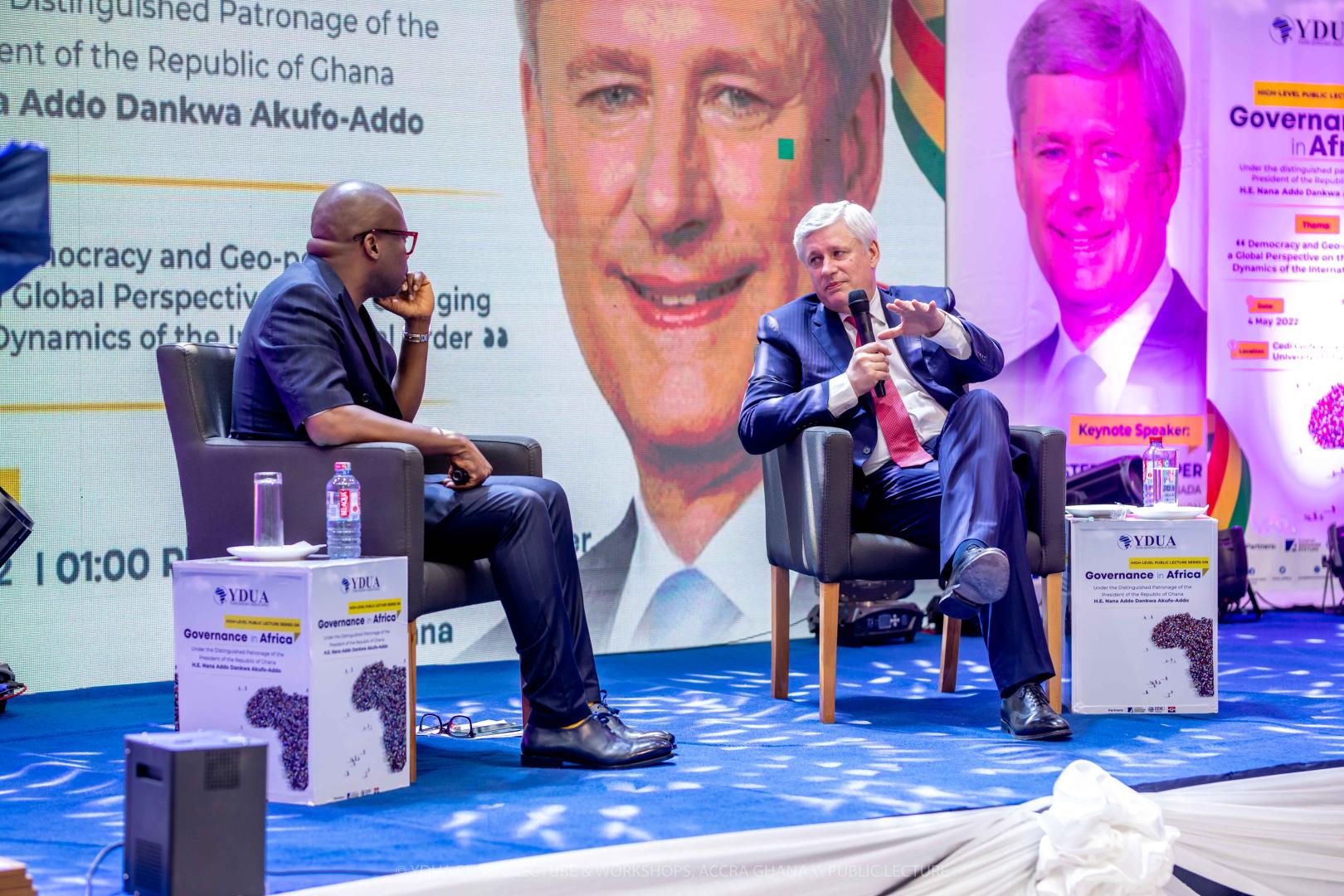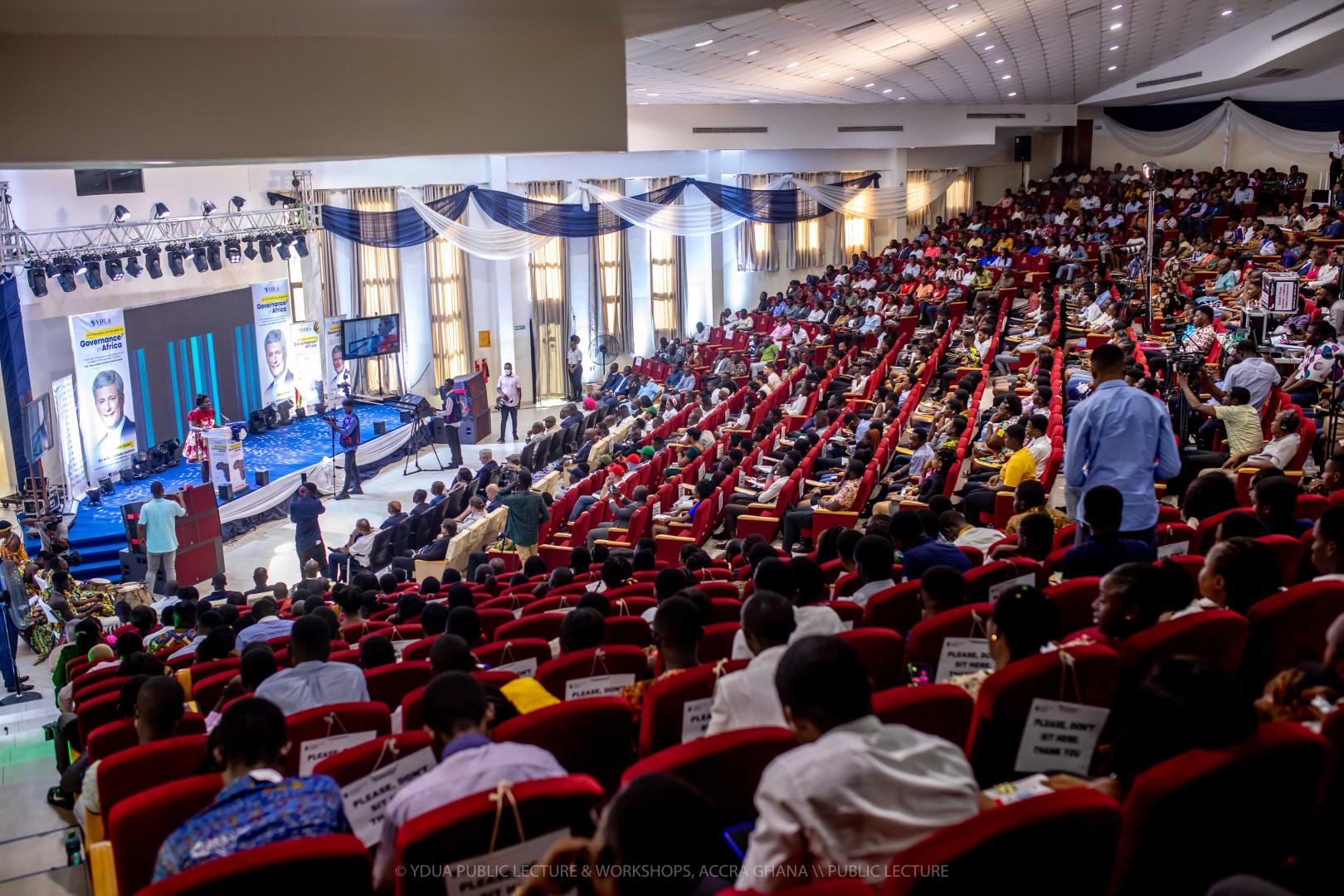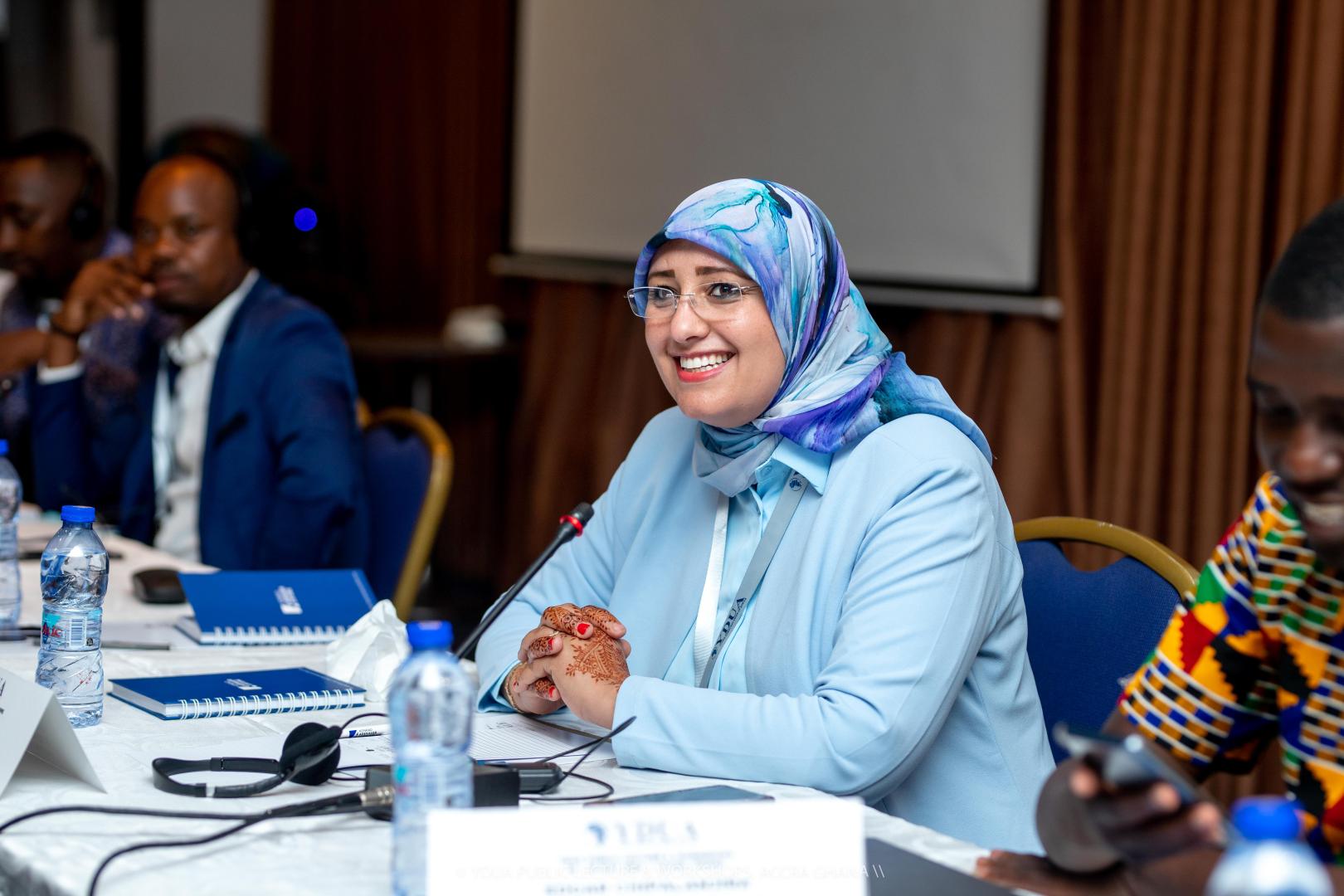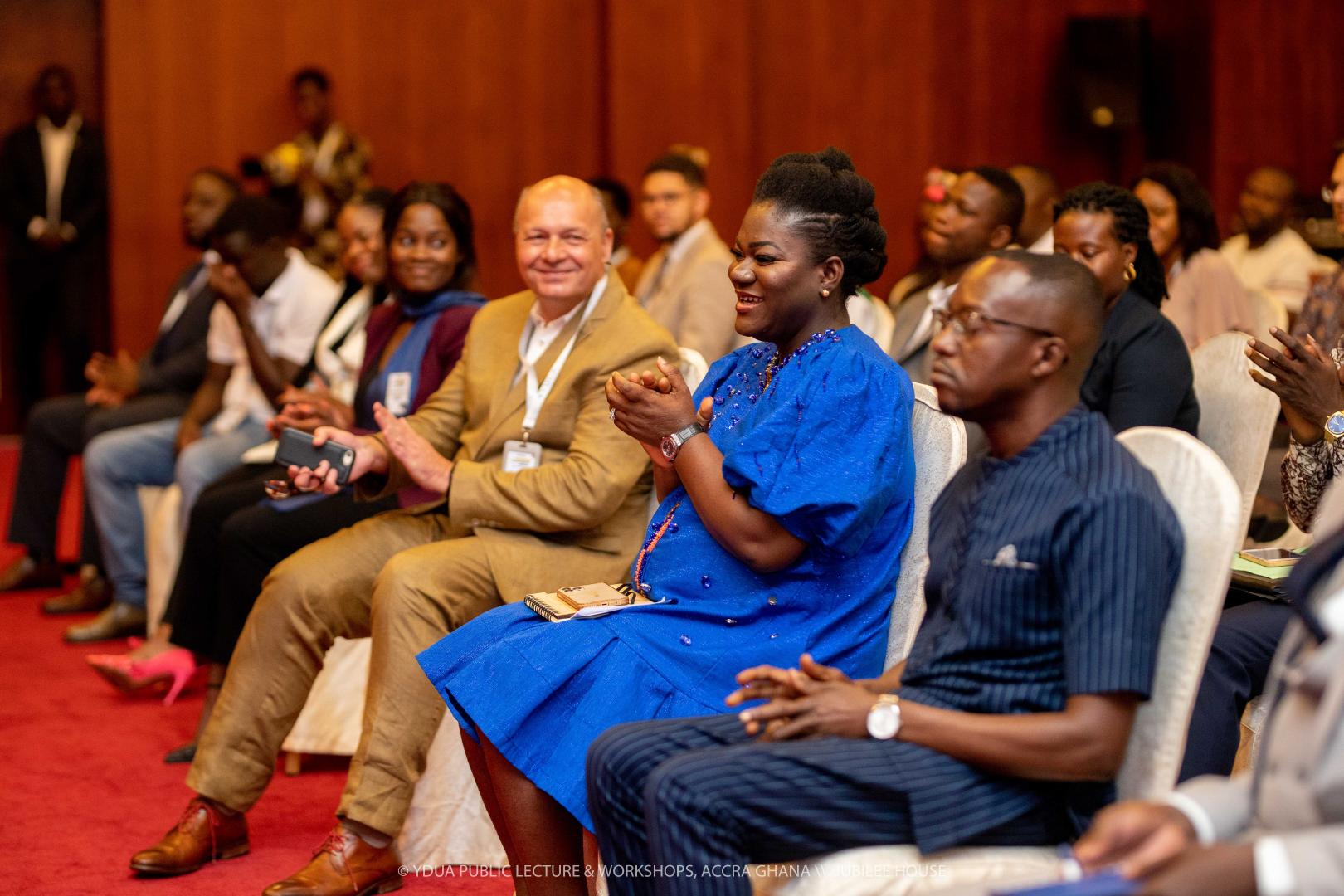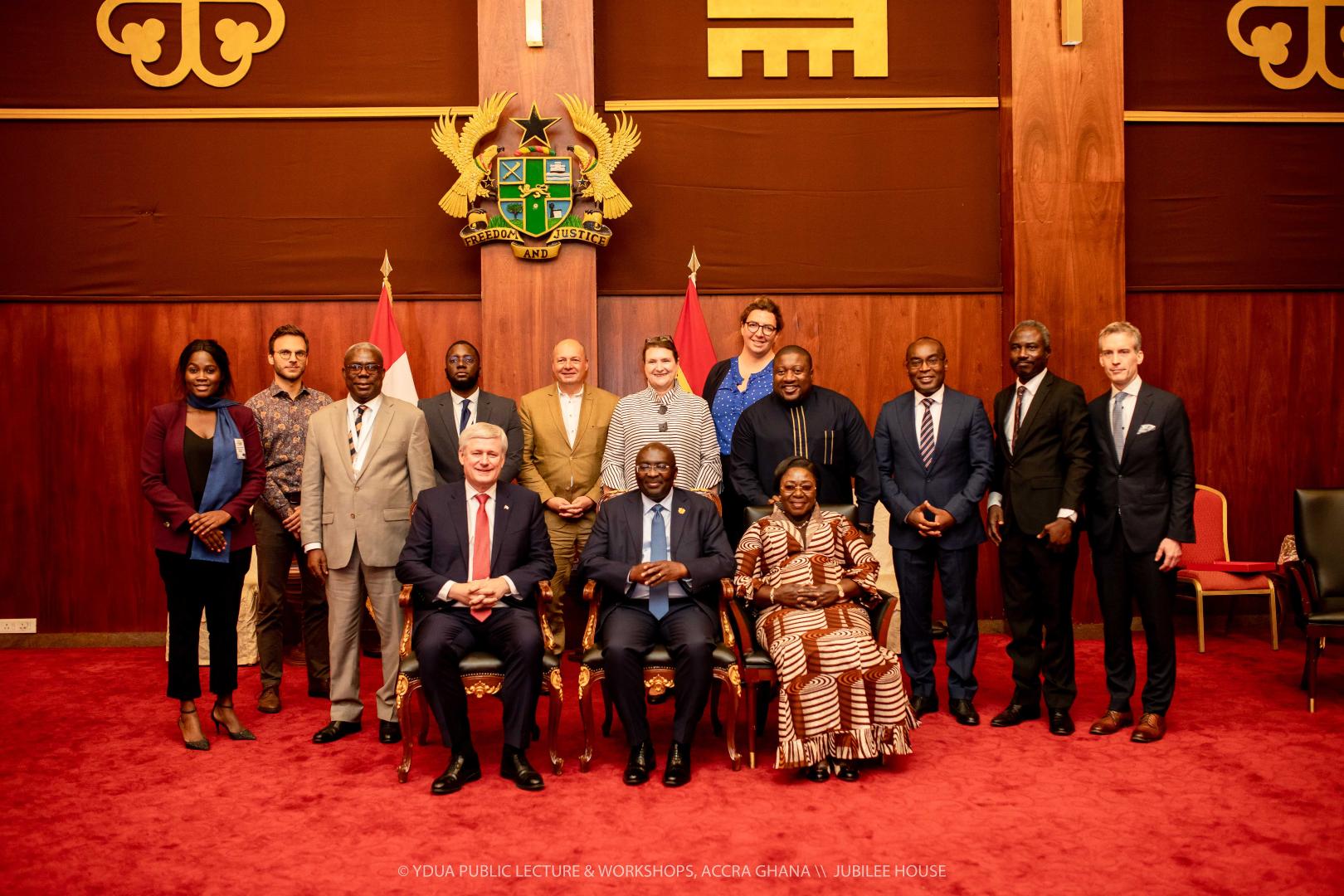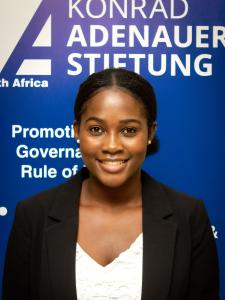In line with investing in the next generation of ethical leaders to promote good governance, the PolDiSSA programme partnered with the Young Democrat Union of Africa (YDUA) for its annual conference, held in May 2022. Established in 1983, the International Democrat Union (IDU) is an alliance of centre-right political parties headquartered in Munich, Germany. The IDU consists of 84 full members from 65 countries across continents, and its chapter in Africa is known as DUA – the Democrat Union of Africa.
YDUA is an alliance of youth wings of the centre-right political parties in Africa, brings together diverse members, unified by a collective commitment to freedom, justice, and solidarity – some of the underlying principles of centrism as a political ideology. The three-day conference was held in Accra, Ghana, from 03 to 05 May 2022 and it featured capacity-building workshops and trainings, engagements at the Jubilee House (Office of the President of Ghana) and a public lecture by former Canadian Prime Minister and chairperson of the IDU, Rt. Honourable Stephen Harper.
The conference started with a workshop on the values, principles and policies of centre-right parties, which Tina Mercep, the Deputy Secretary-General of the IDU, facilitated. There were over 20 delegates from YDUA member parties, including Angola, Equatorial Guinea, Kenya, Malawi, Mozambique, Namibia, Liberia, Tanzania, Uganda, Morocco, Ivory Coast and the host country, Ghana. Participants had the opportunity to engage with Honorable Stephen Harper and inquire about viable strategies to implement these principles in their constituencies. Afternoon activities included a constitutional review meeting by YDUA members.
On day two, Ghana’s National Patriotic Party (NPP) Youth Wing Administrator, Nana Asafo-Adjei Ayeh, shared the party's strategy for 2024 and perspectives on the role of youth wings in national and regional politics. Thereafter, delegates joined Honorable Stephen Harper, ministers of state and members of the diplomatic corps, for an address at the Jubilee House by Dr. Mahamudu Bawumia, Vice President of the Republic of Ghana. Participants also heard from Hon. Frema Opare-Osei, the first female Chief of Staff, signifying some shifts towards the inclusivity of women and youth in politics.
Another closed workshop, conducted by an international political strategist, Ray Novak, aimed to enhance the organisational capacities of youth members and political parties represented at the YDUA conference. Peter Mac Manu, campaign manager of the NPP, reinforced that effective administration was a crucial determiner in winning elections, ensuring the capability to deliver on promises made to the people and sustaining power through competence. In relation, there was a discussion on limited funding within political structures, which in the inverse, creates a need for more innovative young politicians.
In the afternoon of May 04, the high-level public lecture series, titled "Democracy and Geo-politics: a Global Perspective on the Changing Dynamics of the International Order," was held at the University of Ghana's Cedi Conference with over 750 people in attendance. Dr. Holger Dix, Director of the Konrad-Adenauer-Stiftung's Regional Programme – PolDiSSA gave remarks on the importance of political parties and collaborative efforts to promote democracy, particularly considering increasing inward-looking policies since the onset of the COVID-19 pandemic. He referred to Russia's invasion of Ukraine, whose impacts were felt beyond Europe and required solidarity from African member states.
Hon. Stephen Harper's speech on Governance and Democracy in Africa also reflected on the changing international order, presenting centre-right ideologies and practices as the most practicable responses to global socioeconomic and leadership crises. In a conversation-like style, there was another discussion moderated by journalist Paul Adom Otchere, allowing the audience to engage with the former Canadian prime minister during a question-and-answer session. Students, youth groups, and think tanks alike asked about the opportunities and challenges of participating in Africa's political terrain and bridging the generational gap between current and new leaders.
Overall, the conference, particularly the capacity-building workshops, provided opportunities for the YDUA members to dialogue and exchange ideas on enhancing their strategies to strengthen youth voices in political processes across Africa. If implemented, such training would be significant in changing practices, enabling competence, and ensuring inclusivity across age, gender, and other minority groups.



